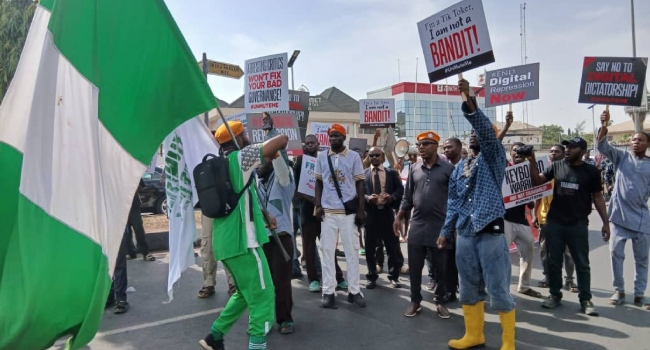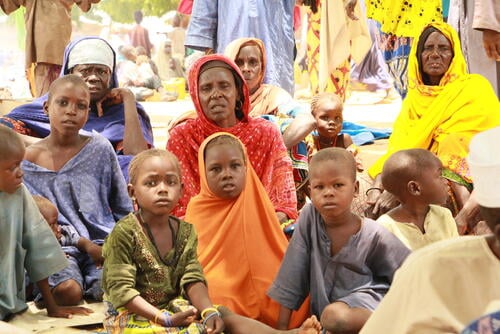Protesters advocating for urgent government reforms were dispersed with teargas in Abuja, Lagos, and Port Harcourt on Monday, as security operatives clamped down on demonstrations against worsening economic conditions, rising authoritarianism, and alleged misuse of the Cybercrime Act by law enforcement agencies.
The nationwide protest, organised by the Take-It-Back Movement in collaboration with various civil society organisations, coincided with National Police Day celebrations at Eagle Square in Abuja—an overlap the police described as “pregnant with ulterior motives.”
Despite earlier warnings from police authorities against the protests, demonstrators gathered in several major cities, carrying placards with messages such as “Stop the Repression” and “Let Us Breathe.” Among the protesters was human rights activist and former presidential candidate, Omoyele Sowore.
The National Coordinator of the movement, Juwon Sanyaolu, highlighted key issues driving the protests: skyrocketing inflation, growing insecurity, and the political turmoil in Rivers State following the controversial declaration of a state of emergency.
Tensions escalated in Abuja’s Maitama District, as well as in Lagos and Port Harcourt, when officers fired tear gas to break up the gatherings. Protesters were seen fleeing as clouds of gas filled the air. No injuries or arrests had been officially reported at the time of filing this report.
In Port Harcourt, protesters who had gathered peacefully near Isaac Boro Park were similarly dispersed. The Rivers State Police Command reportedly ordered the crowd to vacate the area, but the protesters refused, citing their constitutional right to peaceful assembly.
Amaye King Amaye, Rivers State Coordinator of the Take-It-Back Movement, condemned the police’s actions, reaffirming the group’s commitment to continuing their advocacy. He said the protest was aimed at challenging anti-people policies and demanding the reinstatement of the democratically elected governor of Rivers State.
Despite the disruptions, protest organisers vowed to persist in their campaign, calling for immediate government action to address economic hardship, insecurity, and what they described as a deliberate crackdown on dissenting voices.





